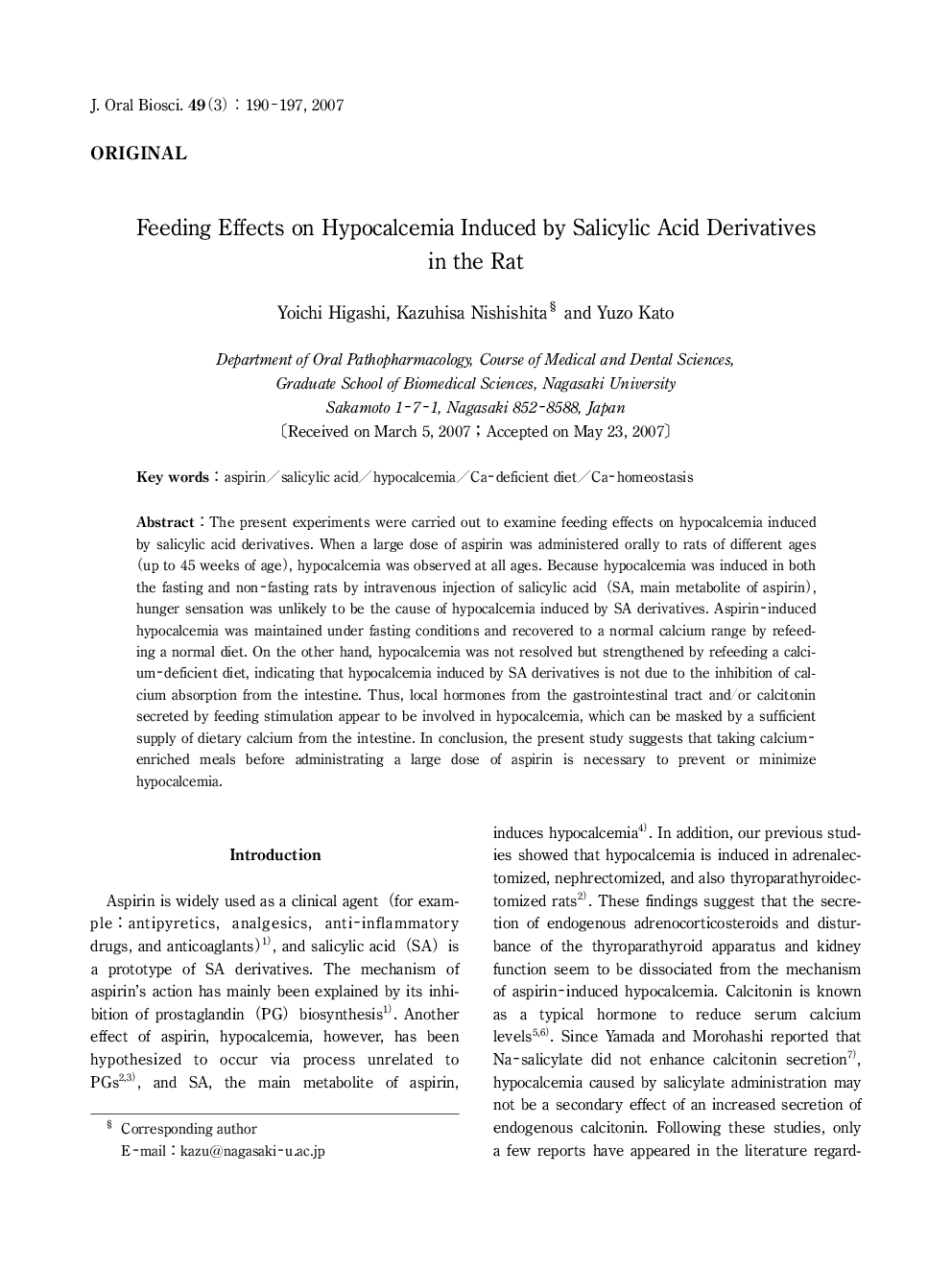| Article ID | Journal | Published Year | Pages | File Type |
|---|---|---|---|---|
| 2777095 | Journal of Oral Biosciences | 2007 | 8 Pages |
The present experiments were carried out to examine feeding effects on hypocalcemia induced by salicylic acid derivatives. When a large dose of aspirin was administered orally to rats of different ages (up to 45 weeks of age), hypocalcemia was observed at all ages. Because hypocalcemia was induced in both the fasting and non-fasting rats by intravenous injection of salicylic acid (SA, main metabolite of aspirin), hunger sensation was unlikely to be the cause of hypocalcemia induced by SA derivatives. Aspirin-induced hypocalcemia was maintained under fasting conditions and recovered to a normal calcium range by refeeding a normal diet. On the other hand, hypocalcemia was not resolved but strengthened by refeeding a calcium-deficient diet, indicating that hypocalcemia induced by SA derivatives is not due to the inhibition of calcium absorption from the intestine. Thus, local hormones from the gastrointestinal tract and/or calcitonin secreted by feeding stimulation appear to be involved in hypocalcemia, which can be masked by a sufficient supply of dietary calcium from the intestine. In conclusion, the present study suggests that taking calciumenriched meals before administrating a large dose of aspirin is necessary to prevent or minimize hypocalcemia.
